Institution: Columbia University
W
U
- University of Delaware
- United Nations
- United Cities and Local Governments
- University of Pennsylvania
- Università di Macerata
- University of Oxford
- United Nations Development Programme
- UN Statistics Division
- UNESCO Information for All Programme
- United Nations Environment Programme
- University of Queensland
- Universidade Estadual do Rio de Janeiro (Federal Rural University of Rio de Janeiro)
- University of the Philippines
- University of California - Irvine
- University of Victoria
- UN-Habitat
- University of Cape Town
- University of Exeter
- United Nations Economic Commission for Africa
- UNICEF
- Università degli Studi di Siena
- Università degli Studi di Napoli Federico II
- Université de Sousse
- United Technologies Research Center
- Università degli Studi di Tuscia
- University of Jordan
- University of California - San Francisco
- UNESCO World Water Assessment Programme (WWAP)
- University of Wollongong
- UNU-WIDER
- Unilever
- University of Gothenburg
- UNESCO
- United Nations Economic Commission for Europe
- UNESCO Global Network of Facilitators
- University of South Africa
- University of Antwerp
- University of Music Franz Liszt Weimar
- UNU-CRIS
- United Nations Office for Disaster Risk Reduction
- United Nations Institute for Training and Research (UNITAR)
I
- International Union for the Conservation of Nature
- International Monetary Fund
- International Institute for Applied Systems Analysis
- Institute for Sustainable Development and International Relations
- Indian Institute for Human Settlements
- International Telecommunication Union
- International Ocean Institute
- India Federation of Self Employed Women's Association
- International Civil Society Action Network
- International Institute for Environmental Development
- ICLEI - Local Governments for Sustainability
- International Labour Organization
- IHE Delft
- International Fertilizer Association
- Islamic Development Bank Institute (IsDBI)
- Istanbul International Center for Private Sector in Development (IICPSD)
- International Labour Organization (ILO)
- International Social Security Association
- Impact Actuarial
- International Cooperative and Mutual Insurance Federation
S
A
- Ain Shams University
- American University
- Athens University of Economics and Business
- African Center for Cities
- Association of Caribbean Energy Specialists
- All India Institutes of Medical Sciences
- Australian Resilience Centre
- Alliance for Global Water Adaptation
- Academy of Korean Studies
- Ahmedabad University
M
H
E
F
- Federal Government of Ghana
- Fundação Getulio Vargas
- Facultad Latinoamericana de Ciencias Sociales
- Federal Government of Chile
- Federal Government of the United States of America
- Foundation for the Global Compact
- FAS - Fundação Amazonas Sustentável (Amazonas Sustainable Foundation)
- Former President of Colombia
- Former Prime Minister of Norway
- Former UN Secretary-General
- French High Council for the Financing of Social Protection
C
N
- New School
- Natural Resource Governance Institute
- National Disaster Management Authority (India)
- National Research University Higher School of Economics
- National Wildlife Federation
- New York University
- Northumbria University
- National Autonomous University of Mexico
- National Institute of Archaeology and Heritage Sciences of Morocco
G
K
D
P
B
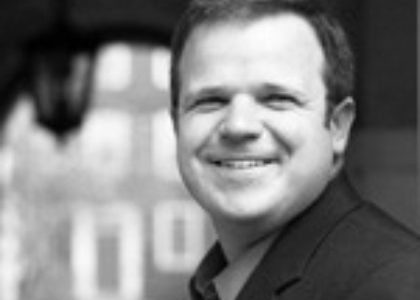
Mark Canavera
Co-Director, Care and Protection of Children (CPC) Learning Network and Associate of the Program on Forced Migration and Health at Columbia University
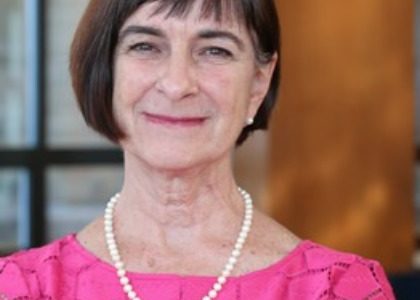
Dr. Cassie Landers
Assistant Professor, Population and Family Health at Columbia University, Mailman School of Public Health
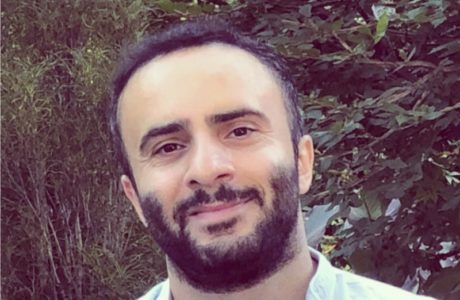
Nicolas Makharashvili
INSPIRE MOOC Content Lead and Learning Facilitator; Senior Program Officer, Columbia University, Mailman School of Public Health onm2003@columbia.edu
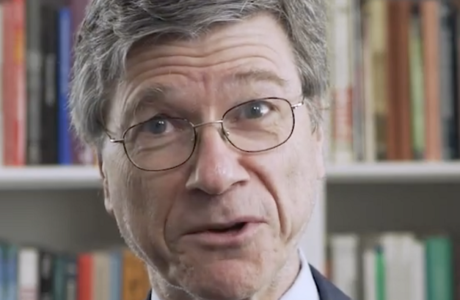
Jeffrey Sachs
Professor Jeffrey D. Sachs is a world-renowned professor of economics, leader in sustainable development, bestselling author, and syndicated columnist whose monthly newspaper columns appear in more than 100 countries. He is the co-recipient of the 2015 Blue Planet Prize, the leading global prize for environmental leadership. He has twice been named among Time Magazines 100 most influential world leaders. He was called by the New York Times, probably the most important economist in the world, and by Time Magazine the worlds best known economist. A recent survey by The Economist Magazine ranked Professor Sachs as among the worlds three most influential living economists of the past decade.
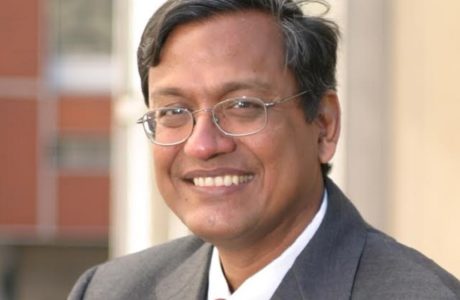
Vijay Modi
Vijay Modi is a professor in the Department of Mechanical Engineering at Columbia University. Read more about this work here: http://me.columbia.edu/vijay-modi-0.
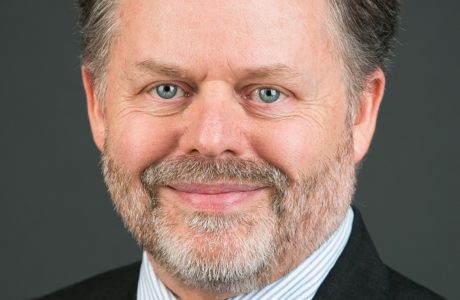
Marc Levy
Marc Levy is deputy director of CIESIN. He is a political scientist specializing in the human dimension of global environmental change. He is a political scientist utilizing interdisciplinary research to understand how humans can better manage complex, interlinked systemic risk. He is well known for his work on environmental security, on global environmental governance, and on sustainability indicators. His research has been supported by a number of agencies, including the National Science Foundation, U.S. Agency for International Development, National Intelligence Council, National Aeronautic and Space Administration, UN Environment Programme, UN Development Programme, and Skoll Global Threats Foundation. He has served as lead project scientist of the Socioeconomic Data and Applications Center since 1998. Levy is an adjunct professor in the Columbia University School of International and Public Affairs, where he teaches graduate courses on environmental security leakages. He also co-directs Columbia’s Certificate Program in Environment, Peace and Security.
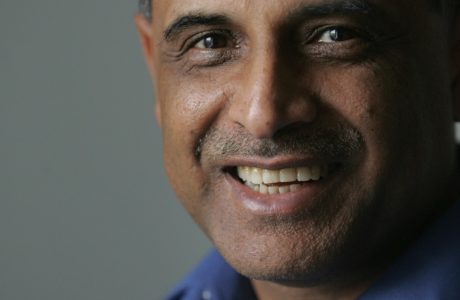
Upmanu Lall
Upmanu Lall is the Director of the Columbia Water Center and the Alan and Carol Silberstein Professor of Engineering at Columbia University. He has broad interests in hydrology, climate dynamics, water resource systems analysis, risk management and sustainability. He is motivated by challenging questions at the intersection of these fields, especially where they have relevance to societal outcomes or to the advancement of science towards innovative application. His current research covers 3 major initiatives that are developed through the Columbia Water Center. The Global Water Sustainability Initiative is focused on an assessment of global water scarcity and risk. The Global Flood Initiative is motivated by the desire to predict and manage floods at a global scale recognizing their climate drivers, and supply chain impacts. America.s Water is driven by the goal of developing sustainable water management and infrastructure design paradigms for the 21st century recognizing the linkages between urban functioning, food, water, energy and climate. These programmatic initiatives are backed by research on systems level modeling of hydrology, climate, agronomy and economics. Manu has pioneered the application of techniques from (a) nonlinear dynamical systems, (b) nonparametric methods of function estimation and their application to spatio-temporal dynamical systems, (c) Hierarchical Bayesian models, (d) systems optimization and simulation and (e) the study of multi-scale climate variability and change as an integral component of hydrologic systems. He has published in journals that focus on hydrology, water resources, climate, physics, applied mathematics and statistics, development, policy and management science. He has been engaged in high level public and scientific discussion through the media, the World Economic Forum, and with governments, foundations, development banks, and corporations interested in sustainability. He has served on several national and international panels. He was one of the originators of the Consortium of Universities for the Advancement of Hydrologic Science, and is currently the President of the Natural Hazards Focus Group of the American Geophysical Union.
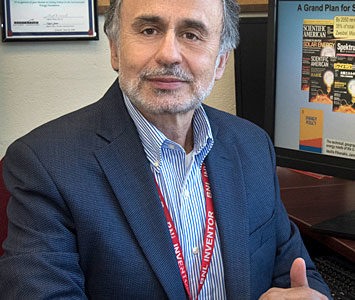
Vasilis Fthenakis
Vasilis M. Fthenakis is the Founder and Director of the Center for Life Cycle Analysis (CLCA), Department of Earth & Environmental Engineering, Columbia University. Read more about his work here: http://eee.columbia.edu/vasilis-fthenakis.